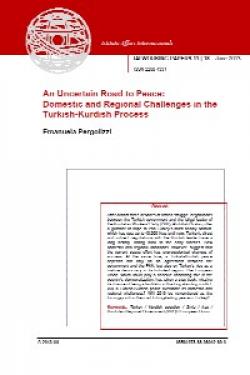An Uncertain Road to Peace: Domestic and Regional Challenges in the Turkish-Kurdish Process
After almost three decades of armed struggle, negotiations between the Turkish government and the jailed leader of the Kurdistan Workers' Party (PKK), Abdullah Öcalan, offer a glimmer of hope to end Turkey's most deadly conflict, which has cost up to 40,000 lives until now. Turkey's direct and indirect negotiations with the Kurdish leader have a long history, dating back to the early nineties. New domestic and regional conditions, however, suggest that the current peace effort has unprecedented chances of success. At the same time, a Turkish-Kurdish peace depends not only on an agreement between the government and the PKK, but also on Turkey's rise as a mature democracy in its turbulent region. The European Union, which could play a decisive anchoring role in the country's democratization, has taken a step back, missing its chance of being a facilitator in this long standing conflict. Will a Turkish-Kurdish peace overcome its domestic and regional challenges? Will 2013 be remembered as the turning-point on the road to long-lasting peace in Turkey?
-
Dati bibliografici
Roma, Istituto Affari Internazionali, 2013, 11 p. -
Numero
1318 -
ISBN/ISSN/DOI:
978-88-98042-89-0
Introduction
1. Erdoğan and Öcalan: an unpredictable embrace
2. Beyond the borders: the negotiations and shifting regional dynamics
2.1. Syrian Kurds: an unwelcome neighbour?
2.2. Transnational challenges with Iraq
3. A difficult road ahead
3.1. Erdoğan's double-edged sword
3.2. Europe's missed chance




